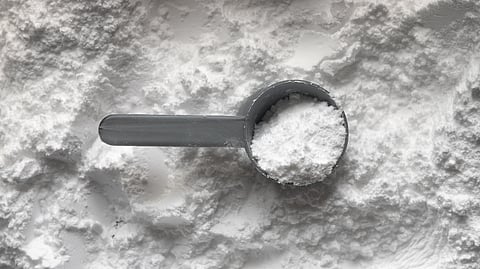Parul Soni from Medbound Times had an educational session with Dietician Neha Suryavanshi regarding Myths about Whey Protein Consumption.
Dietician Neha Suryavanshi is a consultant at Netmeds.com. She works as a online dietician in India.
There are several myths and misconceptions floating on the internet surrounding whey protein.
Let's explore and debunk some of them with Dietician Neha Suryavanshi:
Parul Soni: Whey protein is only for bodybuilders and athletes.
Neha Suryavanshi: While it's true that whey protein is popular among athletes and bodybuilders due to its muscle-building properties, it can be beneficial for anyone looking to increase their protein intake. Whey protein is a convenient and high-quality source of protein, which can aid in muscle recovery, weight management, and overall health.
Parul Soni: Whey protein will make women bulky.
Neha Suryavanshi: This is a common misconception. Women generally have lower levels of testosterone compared to men, which is a hormone associated with muscle growth. Consuming whey protein alone will not cause women to become bulky. Instead, it can support lean muscle development and help with toning and maintaining healthy body composition.
Parul Soni: Whey protein is only effective immediately after a workout.
Neha Suryavanshi: While consuming protein after a workout can support muscle recovery, the timing of protein intake is not as critical as once believed. The body can effectively utilize protein throughout the day, so consuming whey protein at any time can benefit muscle growth and repair.
Parul Soni: Whey protein is harmful to the kidneys.
Neha Suryavanshi: There is no scientific evidence to suggest that whey protein is harmful to the kidneys in healthy individuals. However, individuals with pre-existing kidney conditions should consult with a healthcare professional before increasing their protein intake.
Parul Soni: Plant-based proteins are better than whey protein.
Neha Suryavanshi: Plant-based proteins are a viable option for those following a vegetarian or vegan lifestyle. However, whey protein is a complete protein, meaning it contains all essential amino acids necessary for muscle growth and repair. It is also easily digestible and has a high biological value. Plant-based proteins can be a suitable alternative but may require combining different sources to obtain a complete amino acid profile.


